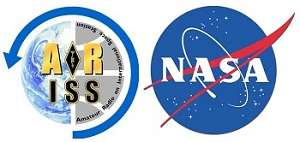 Editors note: Generally we do not repost news items off of the ARRL HQ home page unless the news pertains directly to the Western MA section. In this case, we’ve had school based ARISS contacts made in the section in the past and this is another opportunity to repeat an excellent experience. Please consider it!
Editors note: Generally we do not repost news items off of the ARRL HQ home page unless the news pertains directly to the Western MA section. In this case, we’ve had school based ARISS contacts made in the section in the past and this is another opportunity to repeat an excellent experience. Please consider it!
Amateur Radio on the International Space Station (ARISS) is once again seeking formal and informal education institutions and organizations — individually or working together — interested in hosting an amateur radio contact with an International Space Station (ISS) crew member. A window to accept proposals will open on February 1 for contacts that would be scheduled between January and June 2021. The majority of ARISS contacts involve schools and educational institutions. ARISS is looking for organizations able to attract a large number of participants that can integrate the contact opportunity into a well-developed education plan.
“ARISS contacts afford education audiences the opportunity to learn firsthand from astronauts what it is like to live and work in space and to learn about space research conducted on the ISS,” ARISS said in announcing the proposal period. “Students also will have an opportunity to learn about satellite communication, wireless technology, and radio science.”
Proposal information and documents are available on the ARISS website. Two identical ARISS introductory webinars have been set for January 23 at 9 PM EST (0200 UTC on January 24) and for January 27 at 1800 EST (2300 UTC). Registration is required.
Contacts with ISS crew members run approximately 10 minutes in length and allow students to interact with the astronauts through a question-and-answer session. ARISS contacts are voice-only amateur radio communication opportunities. Schools and organizations typically work with a local amateur radio club to assist in handling the technical aspects of carrying out a successful contact with the ISS.
ARISS stresses that because of the nature of human spaceflight and the complexity of scheduling activities aboard the ISS, schools and organizations must be flexible in accommodating changes in radio contact dates and times.
“Amateur radio organizations around the world with the support of NASA and space agencies in Russia, Canada, Japan, and Europe present educational organizations with this opportunity,” ARISS said. “The ham radio organizations’ volunteer efforts provide the equipment and operational support to enable communication between crew on the ISS and students around the world using amateur radio.”
Proposal information and more details are available on the ARISS website. Contact ARISS with any questions.

